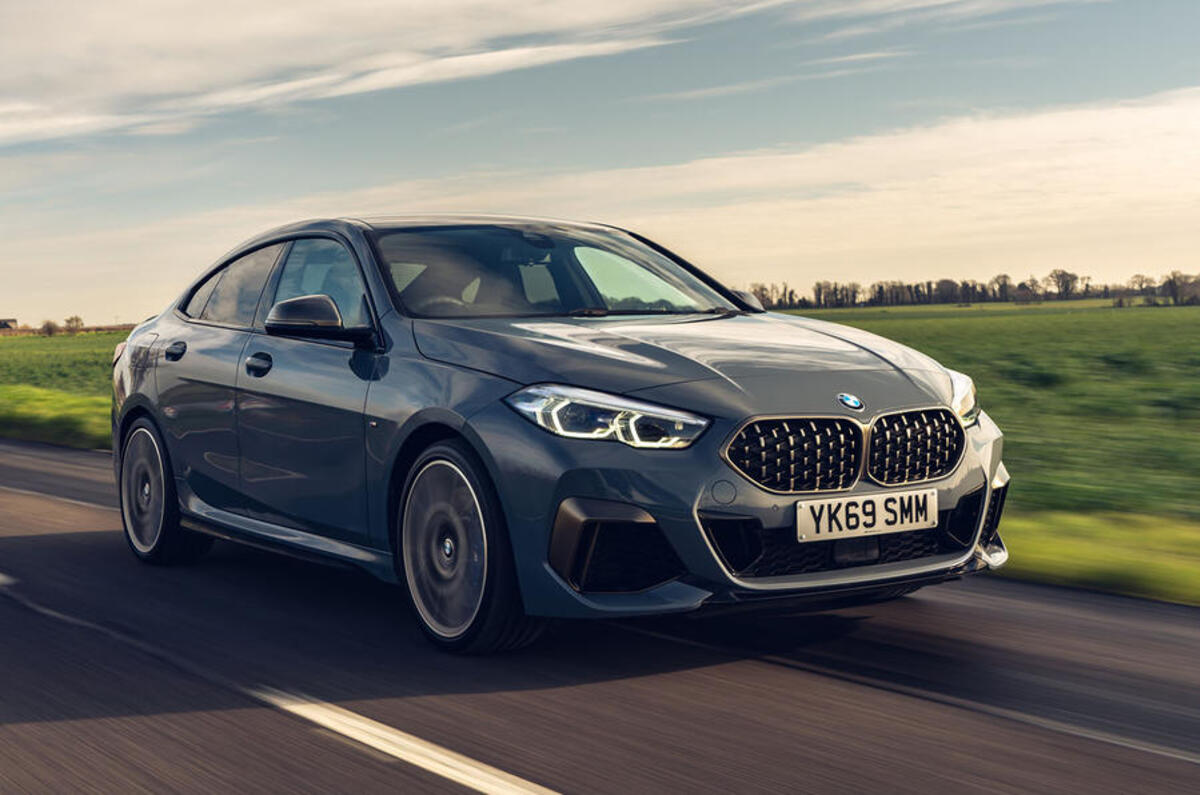We’re lucky in this lark in that we get to test multiple cars. During the weird times of 2020, that’s meant that more metal has turned up at our homes, which is like manna from heaven for my two sons.
The offerings this week and their reaction to them has been interesting: there’s Steve Cropley’s BMW 235i long-term test car and a Volkswagen Tiguan. Both are shiny and new, and yet all the boys want to do is get in Daddy’s new racing car. They haven’t even batted an eye at the Tiguan.

(As an aside, I should point out here that their reaction isn’t a verdict on my driving: they’re four and three, so any fast-looking car is a racing car. Last week, a Renault Mégane 140 TCe was a fast car because it was blue.)
Anyway, I digress. The point I’m trying to make is that I think manufacturers should be careful with their product planning. SUVs might be the cash cow of the moment, but beware the potential damage being done to brand identity and desirability in the eyes of tomorrow’s consumers. Cars need soul and an identity. Building monobox SUVs, all run off the same platform, is possibly not the way to do this.
I know this isn’t easy. Think back just 15 years and all a manufacturer really needed to worry about was a diesel engine and a petrol engine. Now, there are self-charging hybrids, plug-in hybrids, electric cars, the odd rare hydrogen car, LPG if you want to get really left-field, plus the ever more stringent regs on petrol and diesel. The irony, of course, is that all this seemingly increasing amount of choice comes at the cost of variety that you can see and feel.




Join the debate
Add your comment
I guess the issue is baby boomers. In the 1980s and 1990s, when they were at their peak salary and still fit and young- they'd drive demand for coupes, convertibles and hot saloons. Now in their retirement, often overweight with dodgy knees and health issues- a jacked-up grey hatchback thing is what they like.
The millenials are often too poor to buy new, company cars are no longer a thing, so enthusiast cars have pretty much died- apart from the very top end supercars. Millenials who like cars are restricted to preserving the remaining 'fun' cars from the 90s and 00s.
Not just kids. I grew up in the 80s and 90s with Capris, Granadas, Mantas, Calibras and the likes in the mainstream. I am late 30s with a young family and drive a large hatchback (with a huge boot).
I appreciate that a lot of people just want a car as a white good to do the job, and the crossovers look tough and vaguely shaped like the Range Rovers that celebs drive. I guess if this were an appliance news and reviews website, folks there would be berating my cheap beko tumble dryer and dishwasher :)
I think we're a bit too late for this debate.
As we head towards autonomous vehicles the manufacturers know they're on borrowed time. Long term thinking is out of the window, making as much money as you can whilst the sun still shines is what matters, so this means selling as much as you can of what makes big profits right now. In the past manufacturers would be willing to sell the loss leaders, the smaller,cheaper vehicles to attract the younger or new drivers, hoping that they could keep them with the brand as their needs changed and they could sell them more profitable vehicles. And they'd be willing to produce low volume halo models, again to enhance the brand. But there'll be no need for all these different brands, and manufacturers in the future: After all, do you really care who makes your bus, train, or aeroplane?
Its true that teenagers (other than in rural areas) are not fascinated by cars anymore....after all, if they intend to live in inner cities as they build their careers, where would they put them and how often would they use them....more of a liability than an asset.
However, unless the human race are going to stop breeding, the demand for usable cars (SUV's fit the bill perfectly), will continue to be seen as a necessity, particularly as families move out of the city for a better standard of life for their children.
Sharing cars/automated shuttles isnt an option in the countryside or even for families as the thought of remembering/transferring all the clutter each time is frankly unimaginable!